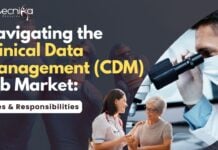GATE Biotech Important Topics – Unit Wise & Reference Books
GATE is an examination conducted jointly by the IISc, Bangalore and seven IITs on behalf of the National Coordination Board (NCB)-GATE. Candidates have the option of selecting only one GATE paper for examination. The scorecard signifies the relative performance level of the candidate in a particular subject (quantified based on several years of examination data).GATE exam score is valid for 3 years from the announcement date of the results.
IIT, Delhi is the conducting authority of the GATE 2020 examination.
GATE qualification is beneficial for students seeking admission and/or financial assistance for either a Master’s program and direct Doctoral programs in Technology/Engineering/Architecture or to Ph.D. programs in relevant branches of Science (in some institutions supported by the MHRD and other Government agencies). GATE qualification is even mandatory in some colleges and institutions, which admit students without MHRD scholarship/assistantship. Additionally, many Public Sector Undertakings (PSUs) ask for the GATE score in their recruitment process.
Biotechnology is one of the most trending fields for research in our era. There are innumerable applications of Biotechnology in health care, agriculture, pharmaceuticals, industry which are vast and critical. Having said so, GATE preparation for Biotechnology
(BT) paper demands the students to have the best knowledge of the concepts.So in case, you feel you have no idea about where to start, or what to refer, here is a list of – GATE Biotech Important Topics – Unit Wise & Reference Books. Books required for all topics covered in GATE syllabus along with the important subtopics are listed below:
SECTION 1: Engineering Mathematics
GATE Biotech Important Topics from Engineering Mathematics. The Engineering Mathematics of GATE BT paper carries around 15% of the total marks, the General Aptitude section another 15% of the total marks. The remaining 70% of the total marks are allotted for questions from the core subject of the paper. These 30% marks are extremely important to decide on one’s rank and score. One may think that they can easily score in subject questions, but questions can be unexpected and there are always few NAT questions that are confusing. So it will be a wise decision to prepare both very well (GA+ mathematics as well as subject concepts).
General Aptitude intends to test the Language (2 marks) and Analytical Skills (13 marks). Mainly questions are from data interpretation, volume, area, surface area, perimeter, speed, chain rule, logarithm, probability, mixture, ratio, fraction, permutation and combination, etc. On analyzing GATE Biotechnology question papers for the last 4–5 years, we have noticed that some topics are more commonly asked than others such as Matrices, Determinants, and Differentiation, etc. hence one can focus on these topics to score well.
REFERENCE BOOKS :
- Advanced Engineering Mathematics – RK Jain, SRK Iyengar
- Advanced Engineering Mathematics – HK Dass
- Linear Algebra – Advanced Engineering Mathematics – Erwin Kreyszig
- Calculus: Intermediate Mathematics by B. B. Sastry and K. Venkateswarlu
- Probability and Statistics: Introductory methods of numerical analysis by SS Sastry
- Numerical Methods: Higher Engineering Mathematics – B.S. Grewal
- Engineering Mathematics solved papers – Made easy publications.
- Engineering and Mathematics general aptitude – G.K Publications.
- GATE Engineering and Mathematics – Nodia and company.
- Higher Engineering Mathematics – Bandaru Ramana
SECTIONS ON CORE SUBJECT:
The trend of the questions in the previous papers of GATE BT sees a major share of questions from Biochemistry and Bioprocess Engineering. 35–40 marks are set from these two portions out of the 70 marks based on the Biotechnology subject. Extra attention and special emphasis should be put on Bioprocess since the share of numerical questions have seen a marked increase in the last few years. Hence, needless to say, bioprocess engineering numerical is the most crucial. Mass transfer, bacterial kinetics, scale-up of fermentation are significant topics. Biochemistry questions are mostly based on enzyme kinetics, pathways, and bioenergetics. Each of the other subjects such as cell and molecular biology, microbiology, immunology, rDNA technology, bioinformatics have almost an equal share of marks not exceeding 10maks in each. If one can maximize the marks in these two areas, a below 50 AIR can be achieved.
________________________________________________________________________
SECTION 2: BIOTECHNOLOGY
GATE Biotech Important Topics from:
Biochemistry:
1. Biomolecules – structure and functions
2. Enzymes, enzyme kinetics numerical, LB plot, inhibition,
3. Metabolism basic concepts,
4. Bioenergetics,
5. Photosynthesis,
6. ETC inhibitors,
7. Biological membranes, structure, action potential and transport processes
REFERENCE BOOKS:
- Lehninger Principles of Biochemistry by David L. Nelson and Michael M. Cox
- Biochemistry by Donald Voet, Judith G. Voet
- Biochemistry Hardcover by Lubert Stryer
- ENZYMES: Biochemistry, Biotechnology, Clinical Chemistry by Trevor Palmer
GATE Biotech Important Topics from:
Microbiology:
1. Viruses – structure and classification,
2. Microbial classification and diversity (bacterial, algal and fungal),
3. Methods in microbiology,
4. Pathogenesis, bacteria producing antibiotics, Diseases (match the following),
5. Nitrogen fixation, which organisms involved, and its advantages and disadvantages,
6. Microbial growth numerical questions and nutrition,
7. Host-pathogen interaction
8. Aerobic and anaerobic respiration
REFERENCE BOOKS:
- Brock Biology of Microorganisms
- Prescott’s Microbiology by Joanne Willey, Linda Sherwood, Chris Woolverton
- Microbiology by Michael J. Pelczar, Kreig and Chan
GATE Biotech Important Topics from:
Cell Biology:
1. Cell Biology: Prokaryotic cell structure (cell wall),
2. Cell cycle checkpoint,
3. Drugs inhibiting cell cycle,
4. Cell growth control (cancer – p53),
5. Cell communication signaling- GPCR signaling and RTK signaling (which hormones, which pathway)
GATE Biotech Important Topics from:
Molecular Biology and Genetics:
1. Molecular structure of genes and chromosomes,
2. Mutations and mutagenesis (imp)
3. Nucleic acid replication(initiation and regulation, DNA pol I, II, III, antibiotics inhibiting which step, transcription, translation, and their regulatory mechanisms in prokaryotes and eukaryotes
4. Mendelian inheritance (population genetics and pedigree analysis)
5. Gene interaction
6. Complementation
7. Linkage, recombination and chromosome mapping (not much important)
8. Extrachromosomal inheritance
9. Microbial genetics(plasmids, transformation, transduction, conjugation) (imp)
10.Horizontal gene transfer and transposable elements
11.The RNA interference (imp)
12.DNA damage and repair (imp)
13.Chromosomal variation
14.Molecular bases of genetic diseases (prions , what causes sex linked inheritance)
REFERENCE BOOKS:
- Molecular Biology of the Cell by Bruce Alberts, Alexander Johnson, Julian Lewis
- Molecular Cell Biology by Harvey Lodish, Arnold Berk, Chris A. Kaiser
- Cell and Molecular Biology: Concepts and Experiments by Gerald Karp
- Molecular Biology of the Gene by James D. Watson
- The Cell – A Molecular Approach by Geoffrey M. Cooper and Robert E. Hausman
- Cell and Molecular Biology by Robertis and Robertis
- iGenetics: A Molecular Approach by Peter Russell
- Genes – By Benjamin Lewin
- Principles of Genetics by Eldon John Gardner, Michael J. Simmons, Peter Snustad
GATE Biotech Important Topics from:
Analytical Techniques:
1. Basic principles and applications of techniques (fluorescent and confocal microscopy difference)
2. Chromatography techniques (ion exchange, and gel filtration)
3. Spectroscopy – Lambert-Beer law, UV, visible, CD, IR, FTIR, Raman, MS, NMR
4. Microarray (DNA, protein both, principles and application )
5. Centrifugation- high speed, ultra – not much important
6. Electrophoresis (SDS-PAGE imp)
REFERENCE BOOKS:
- Molecular Cloning: A Laboratory Manual by Joseph Sambrook, David Russell Fundamentals of Biostatistics by V.B. Rastogi
- Principles and Techniques of Biochemistry and Molecular Biology by Wilson/Walker
GATE Biotech Important Topics from:
Immunology:
1. Difference between innate and adaptive,
2. Types of antibodies (Imp),
3. The function of antibodies, monoclonal antibodies (imp), VDJ recombination,
4. Autoimmunity,
5. Hypersensitivity,
6. Types of MHC, cell signals in immunology, diseases associated
7. Antigen-Antibody interactions – ELISA
8. Complement pathway (proteins involved, MAC) (imp)
9. Immune tolerance
REFERENCE BOOKS:
- Kuby Immunology by Thomas J. Kindt
- Roitt’s Essential Immunology
- Cellular and Molecular Immunology by Abbas, Lichtman and Pillai
GATE Biotech Important Topics from:
Bioinformatics:
1. Major bioinformatic resources and search tools
2. Sequence and structure databases (primary, secondary imp)
3. Biomolecular sequence file formats
4. Scoring matrices (PAM and BLOUSM)
5. Sequence alignment (pairwise, multiple) (BLAST, FASTA, MS Clustal W)
6. Phylogeny (which tools) (imp)
7. Data mining
8. Analytical tools for genomic and proteomic studies
9. Molecular dynamics and simulation (basic concepts including force fields, protein-protein, protein-nucleic acid, protein-ligand interaction)
REFERENCE BOOKS:
- Introduction to Bioinformatics 3rd edition by Arthur M. Lesk
- Introduction to Bioinformatics (A theoretical and Practical Approach) by Stephen A. Krawetz and David D. Womble
- Understanding Bioinformatics by Marketa Zvelebil and Jeremy O Baum
- Bioinformatics (A practical guide to the analysis of genes and proteins by Andreas D. Baxevanis and B. F. Francis Ouellette
________________________________________________________________________
SECTION 3: RECOMBINANT DNA TECHNOLOGY
1. Restriction endonucleases and modification enzymes
2. Various vector systems, advantages, disadvantages
3. Gene cloning and expression: Processes and components
4. Transposons, mechanism, and examples; gene targeting
5. DNA labeling techniques; DNA sequencing
6. Blotting techniques such as Southern and northern blotting
7. Molecular markers, RAPD, RFLP
8. Gene therapy and applications
9. Site-directed mutagenesis
REFERENCE BOOKS:
- Principles of Gene Manipulation and Genomics by S.B. Primrose and R.M. Twyman
- Molecular Biology of the Gene by James D Watson
- Gene cloning and & DNA analysis ( An introduction by T. A. Brown)
- Biotechnology Expanding Horizons by B.D. Singh
________________________________________________________________________
SECTION 4: PLANT & ANIMAL BIOTECHNOLOGY
GATE Biotech Important Topics from:
Plant Biotechnology:
• Basic terms like Totipotency, callus, dedifferentiation, micropropagation
• Tissue culture and Cell suspension culture system: methodology, plant growth regulators and elicitors, in vitro conditions and requirements
• Growth phases and kinetics
• Media requirements and nutrient optimization
• Secondary metabolites: Production by plant suspension cultures
• Transgenic plants: Method and plant products of industrial importance
REFERENCE BOOKS:
- Plant Biotechnology (the genetic manipulation of plants) by Adrian Slater, Nigel W. Scott, and Mark R. Fowler
- Introduction to Plant Biotechnology BY H.S. Chawla
- Introduction to Plant Tissue Culture by M.K. Razdan
- Plant Tissue Culture (Techniques and Experiments) by Roberta H Smith
GATE Biotech Important Topics from:
Animal Biotechnology:
• Animal cell culture basic requirements and concepts
• Properties such as anchorage and non-anchorage dependent cell culture
• Cell growth kinetics;
• Hybridoma technology mechanism
• Stem cell technology and applications
• Animal cell cloning and Transgenic animals: production and examples
REFERENCE BOOKS:
- Culture of Animal Cells – A Manual of Basic Techniques and Specialized Applications by R. Ian Freshney
- Animal Cell Culture and Technology by M. Butler
- Carl Pinkert Transgenic Animal Technology: A Laboratory Handbook.
- Animal Biotechnology – Models in Discovery and Translation Ashish S. Verma and Anchal Singh
- Biotechnology by U Satyanarayana
SEE ALSO: AIMGATE 2020 – Test Series for GATE Biotech & GATE Life Science
________________________________________________________________________
SECTION 5: BIOPROCESS ENGINEERING & PROCESS BIOTECHNOLOGY
GATE Biotech Important Topics from:
Bioprocess Engineering :
One of the most important units of the GATE BT syllabus! An approximate of 20 marks is guaranteed in the exam. Questions are asked on cell demands: how much O2 , nutrition, agitation, optimization, formula, biosensors, bacteria what does it want, what does it produce, and applications, how Dunaliella makes glycerol, SCP, microbes making antibiotics, importance in all etc
1. Chemical engineering principles applied to a biological system
2. Principle of reactor design (impeller size, design formulas), ideal and non-ideal multiphase bioreactors,
3. Mass and heat transfer,
4. Rheology of fermentation fluids,
5. Aeration and agitation (Kla determination)
6. Media formulation and optimization
7. IMP kinetics of microbial growth, substrate utilization, and product formation
8. Sterilization of air and media (numerical)
9. (Imp)Batch, fed-batch and continuous processes (chemostat)
10.Various types of microbial and enzyme reactors
11.Instrumentation control and optimization
12.Unit operations in solid-liquid separation and liquid-liquid extraction
13.Process scale-up, economics, and feasibility analysis
REFERENCE BOOKS:
- Bioprocess Engineering Principles by Pauline M. Doran
- Bioprocess Engineering Basic Concepts by Michael L Shuler, Fikret Kargi, Matthew Delisa
- Principles of Fermentation Technology by Peter F. Standbury, Allan Whitaker and Stephen K. Hall
GATE Biotech Important Topics from:
Process Biotechnology:
1. Engineering principle of bioprocessing – Upstream production and downstream
2. Bioprocess design and development from lab to industrial scale
3. Microbial, animal and plant cell culture platforms
4. Production of biomass and primary/secondary metabolites
5. Biofuels, Bioplastics, industrial enzymes, antibiotics
6. Large scale production and purification of recombinant proteins
7. Industrial application of chromatographic and membrane-based bioseparation methods
8. Immobilization of biocatalysts (enzymes and cells) for bioconversion processes
9. Bioremediation – Aerobic and anaerobic processes for stabilization of solid/liquid wastes
REFERENCE BOOKS:
- Process Biotechnology Fundamentals by S. N Mukhopadhyay
- Process Engineering in Biotechnology by Jackson, Alan
As the GATE exam is approaching nearer, anxiety and panic attacks are at their zenith. It does not matter how many hours of study you put in, what matters is how many concepts you grasp within those hours, which has to constantly tested and revised with mock tests and online merit-based exams. With more practice, comes more chance of successfully passing the exam. It not only helps you to manage time during the actual exam but also allows you to find out your weaker areas so you can focus on them.
Hmm…where do you get this complete package…? Well, why don’t you give Biotecnika a try? Although there is no shortcut to success, with excellent track records and guaranteed success, Biotecnika DOES provide a strategy to success, which may certainly make the process faster!







































Can you please provide GATE Life Sciences (XL) (Section 1,Section 2 & Section 3- Microbiology/Biochemistry) Unit Wise Important Topics and Reference Books ?
Please also tell about Gate Life sciences Important topics.